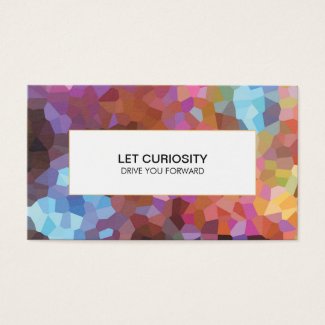Fear lets you know that your point of attraction is currently focused on what you don’t want rather than focusing on what you DO want. Fear shows your focus is focused on the worst case situation that you don’t want to happen.
For example: Let’s say someone is afraid of getting into a relationship.
Their fear lets them know that their point of attraction is on what they don’t want to happen if they are in a relationship.
For example, maybe when they think of relationships ,the dominant thoughts and focus are on things like:
- losing freedom
- obligation to do stuff you dont want
- etc.
Because their focus is dominantly on the “what I don’t want” end of the stick, they feel fear when they think of getting into a relationship.
Any bad feeling, like fear, tells you that you are focused on a subject in a way that’s different from what your Source knows about how that experience can be when it’s all working out for you.
Let’s get back to the relationship example:
Your Source knows a relationship can be wonderful. Your Source knows all about the “positive end of the stick” aspects of getting in a relationship: the delicious feelings of togetherness, belonging, acceptance, love, fun, flow, companionship, co-creative joy etc.
Because you have Source within you, there is a vibrational version of you whose focus is all the “wanted” things, and that therefore doesn’t feel fear when it’s focused on this subject.
How to overcome fear?
So you understand what fear is, but how do you overcome it?
1.) Acknowledge that there is a part of you, the Source part of you, that is not afraid of the thing in question, and sees all the positive aspects of the thing.
2.) Acknowledge that the positive end of the stick exists
3.) Focus on the positive things on the subject and allow some momentum to gather about these.
“Find little pieces of something, that feel entirely different than fear. And we´d practice them, until they are so active in our vibration, that even “scary” things don´t scare you! “
- Chicago 6/4/11, from the clip “Abraham Hicks: desires to move through fear”
eg in terms of relationships, acknowledge that there’s a positive end of the stick – wanted things, like flow, fun, steadiness, a feeling of acceptance, love, home, safety, security, belonging, togetherness etc etc.
4.) Soothe the negative beliefs on this subject. Try to find reasons why the negative things might not happen, why they might not be true. Is it possible that they won’t happen? Katie Byron likes to ask of fears “is it *really* true?” Does it have to be true? Is there any case in which the negative thing might not happen?
5.) Practice your new positive thoughts to turn them into a more positive belief: As you catch yourself thinking a negative thought on the subject you are fearful of, pivot yourself into a more positive place; catch yourself and pivot repeatedly, you start to train yourself into a new habit of behaviour that is more in tune with your true inner guidance and feels better. Practise, practise, practise!
Note: If in your “work” to focus positively you notice discomfort, or if you find thoughts that ares “off in the bushes” steer your thoughts in an easier-feeling, more believable-feeling, better-feeling place.
Sometimes it’s a good idea to get off the topic and come back to it when you’re in a fresh, clearer mood; starting from a different vibrational set-point, so try working on feeling better on this subject when you’re in the vibrational place that’s more open to working on it.
(Until then, maybe focus on other subjects  )
)
- -
References:
https://www.youtube.com/watch?v=wu6YlRvHGUE


